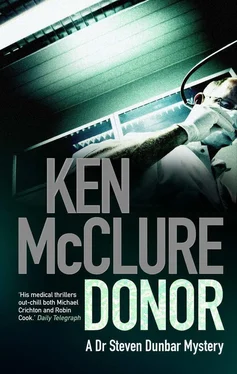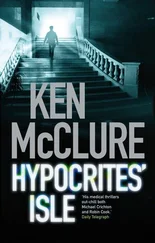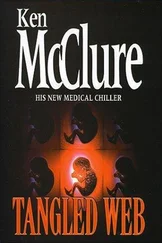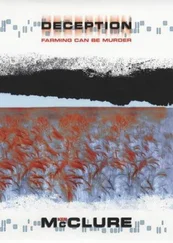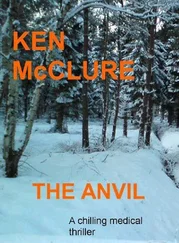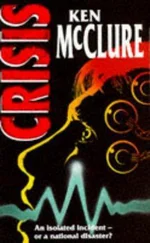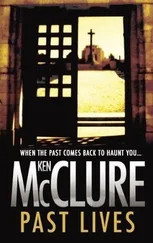Ken McClure - Donor
Здесь есть возможность читать онлайн «Ken McClure - Donor» весь текст электронной книги совершенно бесплатно (целиком полную версию без сокращений). В некоторых случаях можно слушать аудио, скачать через торрент в формате fb2 и присутствует краткое содержание. Жанр: Триллер, на английском языке. Описание произведения, (предисловие) а так же отзывы посетителей доступны на портале библиотеки ЛибКат.
- Название:Donor
- Автор:
- Жанр:
- Год:неизвестен
- ISBN:нет данных
- Рейтинг книги:4.5 / 5. Голосов: 2
-
Избранное:Добавить в избранное
- Отзывы:
-
Ваша оценка:
- 100
- 1
- 2
- 3
- 4
- 5
Donor: краткое содержание, описание и аннотация
Предлагаем к чтению аннотацию, описание, краткое содержание или предисловие (зависит от того, что написал сам автор книги «Donor»). Если вы не нашли необходимую информацию о книге — напишите в комментариях, мы постараемся отыскать её.
Donor — читать онлайн бесплатно полную книгу (весь текст) целиком
Ниже представлен текст книги, разбитый по страницам. Система сохранения места последней прочитанной страницы, позволяет с удобством читать онлайн бесплатно книгу «Donor», без необходимости каждый раз заново искать на чём Вы остановились. Поставьте закладку, и сможете в любой момент перейти на страницу, на которой закончили чтение.
Интервал:
Закладка:
He could, of course, still be a lousy administrator, thought Dunbar. There were lots of intellectually gifted people who ended up in charge of university departments when they didn’t have the managerial capacity to run a pie stall. If Ross was an ivory-tower researcher, it was conceivable that the running of his unit might suffer but, again by all accounts, this was not true. The transplant unit at Medic Ecosse was regarded as one of the most successful in the country and Ross was no absent-minded professor. He was very much a hands-on leader, not at all the sort of man to preside over a unit where a patient could mistakenly be given the wrong organ.
There was some information on Ross’s personal life in the file. He had been married to an American woman, a radiologist he had met while working in Boston, but things hadn’t worked out and they had divorced four years ago after three years of marriage. There were no children. His ex-wife had returned to the States, where she had since remarried. Ross lived alone in Glasgow in the penthouse flat of a modern block of flats in Kelvingrove, although he made frequent working trips to Geneva as a clinical consultant.
In the year to April last, Ross had earned?87,000. He drove a two-year-old ‘5’ series BMW and was a member of two clubs. He held an honorary senior lectureship at the University of Glasgow on account of an agreement to deliver a series of four lectures a year on immunology.
Attached to the file were reprints of four of his most recent research publications. One dealt with something called ‘Immuno-preparation’; the other three were on the possible use of alternative species as donors of organs for human transplant. Dunbar put them aside to read when he had more time. They’d probably demand a deal of concentration. Immunology and transplant surgery were a far cry from his own area of medical expertise, which was field medicine.
The only son of a Cumbrian schoolmaster and his music teacher wife, Steven Dunbar had grown up in the Lake District, in the small village of Glenridding on the shores of Ullswater. He’d studied medicine before completing two residencies, one in Leeds in general surgery and the other in Newcastle in Accident and Emergency. It was around this time that he’d started to question his motives for entering medicine and begun to consider other options. He felt as if he’d been on a treadmill since leaving school. Teachers and parents had been delighted at his success in gaining entry to medical school and he’d been swept along in the approval and pleasure of others. None of them, including himself, he had to admit, had ever considered if he really wanted to be a doctor. It wasn’t until a friend suggested he think about the army that his future had taken shape.
He opted for the rigours of life in the Parachute Regiment and had been extensively trained, first as a soldier and then in field medicine. The next few years brought all the physical challenges he could have ever dreamed of as he served with units of the regiment and occasionally on secondment to Special Forces. It was, though, a lifestyle that couldn’t continue indefinitely, and when the time came for him to stop he knew and accepted it. The big question had been what to do next.
The army ran courses for officers returning to civilian life but Dunbar wasn’t included. He was a doctor; it was assumed he’d be returning to medicine in civvy street. Luckily, he had confided in a fellow officer that he had no wish to continue in medicine, for a while at least. This had led to a suggestion through a friend of a friend that he might be suitable for a job with the Sci-Med Inspectorate. Now, after four years with Sci-Med he felt settled and content.
No two assignments were ever the same; each was demanding in its own way and, being concerned exclusively with problem areas in medicine, he was obliged to keep abreast of the latest advances in his profession. His readiness to move to assignments at a moment’s notice was part of the job, wherever they happened to be in the UK.
The only real drawback to his lifestyle was that he was seldom in one place long enough to establish relationships. At thirty-five he was still unmarried.
Dunbar flipped open the slim file on Amy Teasdale. She had suffered almost continual renal problems from birth. Various treatments had been tried in a variety of hospitals while she waited for a suitable organ to become available, but her condition had deteriorated until, after a period of particularly severe illness, she was admitted to Medic Ecosse. The team there managed to stabilize her long enough for a suitable donor organ to be found.
Unfortunately the story had not had a happy ending. Amy’s body had rejected the organ almost immediately, despite the computerized match being good in terms of tissue compatibility. A copy of the Medic Ecosse comparator sheet was included. Cause of death was given as severe immune response to the presence of foreign tissue, despite satisfactory in vitro compatibility. As the compatibility rating of the donor organ was given as 84 per cent, Dunbar thought Staff Nurse Fairfax’s complaint that Amy had been given the wrong organ did not sound too convincing.
He turned to the file on Lisa Fairfax herself. In view of what had gone before, it was possible that the nurse’s claim might have stemmed from her having been deeply fond of young Amy Teasdale and correspondingly upset by her death — always an occupational hazard for staff in children’s wards. She obviously believed that the immunological reaction she had witnessed in her young charge had been caused by the child receiving an incompatible organ, but her reaction could have been inspired by grief and the inherent need to explain away an emotionally unacceptable happening.
Despite assurances from the hospital authorities that there had been no mix-up and that Amy had received an entirely compatible kidney, as shown by lab analysis, Lisa Fairfax had persisted in her claims and she and the hospital had parted company. It looked like a classic case of a nurse allowing herself to become too involved with her patient, thought Dunbar.
He closed the file. It seemed straightforward on paper, although the question of why Staff Nurse Fairfax had persisted with her allegations until Sci-Med became aware of them puzzled him. People did tend to make wild claims and accusations when they were deeply upset, but after a period they usually recovered and, in many cases, were embarrassed about things they had said under stress. Maybe he should arrange a meeting with her, to see if there was more to her than had come through in the report.
He looked to see if there was any more about her and found a one-page personnel file. It included her address and some background material, including the fact that she had worked for three years as a theatre nurse and for a further three specializing in transplant patient care. This made Dunbar think again. He had been ready to dismiss her as emotionally vulnerable, but perhaps he was wrong. You accumulated a lot of nursing experience in six years. Lisa Fairfax must have seen a lot of transplant patients come and go in that time. He decided that, in fairness, he would definitely have to arrange a meeting.
The file on Sheila Barnes’s complaint was skimpy. A young patient named Kenneth Lineham had, like Amy Teasdale, died after rejecting a transplanted kidney. The organ had been deemed highly compatible with his own tissue type but, again like Amy Teasdale, he had undergone immunological rejection of the organ after the operation. Sister Barnes, like Lisa, had maintained that there had been a mix-up somewhere along the line and he had been given the wrong organ. A preliminary investigation of her allegation failed to find any evidence of this and she had resigned in protest.
Dunbar could certainly understand why the Sci-Med computer had drawn attention to the situation. The two nurses had made almost identical claims about two different patients almost three years apart, and both were experienced transplant-unit nurses. But, it had to be said, there was a total lack of scientific evidence in both cases. The women’s assertions seemed to have been based on gut feeling and very little else.
Читать дальшеИнтервал:
Закладка:
Похожие книги на «Donor»
Представляем Вашему вниманию похожие книги на «Donor» списком для выбора. Мы отобрали схожую по названию и смыслу литературу в надежде предоставить читателям больше вариантов отыскать новые, интересные, ещё непрочитанные произведения.
Обсуждение, отзывы о книге «Donor» и просто собственные мнения читателей. Оставьте ваши комментарии, напишите, что Вы думаете о произведении, его смысле или главных героях. Укажите что конкретно понравилось, а что нет, и почему Вы так считаете.
